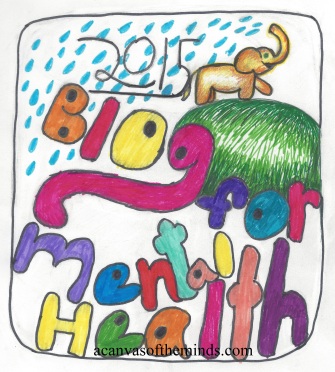
It happened again. I was telling some friends about the incident in which I was attacked for my presentation on compassion, and while I was doing so, another friend walked in and said the exact same thing. Compassion just enables people to be lazy, incompetent, unproductive members of society.
I am trying to be compassionate about why some people feel the need to attack compassion. I am going to assume it is because they have misconceptions about what compassion is. So I thought I would take this opportunity to clarify what it is not.
1. Judgmental responses are not compassionate. This one is obvious but still worth mentioning, since judgment is usually our automatic response. You are so lazy. There must be something seriously wrong with you for watching Netflix when you should be working on your paper.
Judgment is a motivation strategy that is shame-based. Sometimes it’s effective, but even when it works, it rarely makes you feel like you’ve accomplished something. It’s about time you did something! You only wasted the whole freaking day!
An example of a compassionate response would be: It is hard to motivate yourself to do something unpleasant. It’s hard for everyone. And it’s hard to write something knowing that someone else is going to evaluate it. No one likes to be criticized.
2. Compulsory positive thinking is not compassionate. Telling someone to look on the bright side, count your blessings, or think positive thoughts is not compassionate because it communicates the message that negative feelings are bad and should be avoided at all costs. When we are being compassionate, we accept all of our thoughts and feelings, positive and negative.
An example of a more compassionate response would be: It’s ok that you’re feeling sad. Everyone feels sad sometimes. At some point–maybe even later today–you will feel differently.
3. Comparison is not compassionate. Think of the less fortunate. The people in war-torn countries. The poor, hungry, and sick. What do you have to be unhappy about? These suggestions are well-intended and helpful for some people, but they, too, can convey the message that you have not suffered enough to deserve your feelings.
A more compassionate response would be: This may seem like a small thing, but it causes you pain. And I care about anything that causes you pain. I care about all of your feelings.
4. Self-indulgence is not compassionate. I have to thank Yvonne Spence for leaving this comment on my post Mental Illness Does Not Discriminate, because it hits the nail on the head. People who attack compassion believe that compassion gives people permission to avoid responsibility. Which it does not. You still have to write the paper. Experience pain. Strive to be a better person. But you can do so in a loving way.
I would argue that any advice that you give to someone can be made more effective by prefacing it with a compassionate response. And in my experience, validating someone’s feelings frees up the energy they were using for self-hatred and actually makes them more productive.






What a beautifully written post. You are so wise.
Love,
Janie
LikeLike
Thanks Janie! I can’t say I think of myself as being wise, but I do consider myself an expert in suffering!
LikeLike
Another great post on compassion, Christy. I was nodding along and thinking how much I loved the examples of compassionate responses you gave, and then I saw my name! What a surprise! I’m glad to have been of some assistance and thank you for the shout out!
I love, love, love your first example – I have 2 daughters working towards major exams in a few months and they have a lot of work coming up. Sometimes I’ve felt frustrated at not finding the right words to support them when they watch videos instead of studying and your suggestions are just perfect. Thanks!!
LikeLiked by 1 person
Thanks Yvonne! Your comment was so on target I couldn’t wait to make use of it!
LikeLike
I completely agree with you, Christy: Compassion doesn’t equate to laziness. When we willingly participate in community service or donate money to a charitable cause, we are being compassionate. Yet, those are only two of many ways of showing it. Maybe other people don’t view compassion as highly as other qualities these days?
Like Yvonne, I also loved Example #1 (judgmental responses). I grew up in a family that still responds to certain things that way, and it can be tiring. I think that’s why I try to be more accepting of other people – because I know what it’s like to feel judged or witness others being judged, and it’s not fair to be treated that way.
LikeLike
Thanks for your feedback. I think that’s the one good thing about being judged by others–it has taught me to be more compassionate.
LikeLiked by 1 person
Well said. Thank you.
LikeLike
Thanks Kitt!
LikeLiked by 1 person
I enjoyed your post. I have signed up for 1000 Voices Speak for Compassion. I live with a severe auto-immune disease and the lack of compassion that I’ve experienced over the years has been staggering. Our society has a strong emphasis on reciprocity so if you can’t reciprocate or contribute in some way, then you face the wrath of the herd. I broke my foot recently and people get that. Nobody expects my foot to instantly get better and the kids have been much more compassionate and understanding as well. Being able to see a weakness or problem seems to make an enormous difference.
LikeLiked by 1 person
Thanks! Glad you’re going to participate. There are definitely physical illness that people treat like they’re all in the person’s head. Even doctors. Even mental health professionals. It’s unfortunate.
LikeLike
Very insightful Christy. I have found myself doing number “3” and thinking I am being compassionate-smh! Now I know better.
LikeLiked by 1 person
Thanks Joy!
LikeLiked by 1 person
Great post. Especially like #2. That happens way too often. Thank you for sharing all of these.
LikeLiked by 1 person
Thanks Sarah!
LikeLiked by 1 person
Fantastic post! After I heard “compassion is not pity”, I started thinking about compassion in a new way. You’ve taken my thoughts on the topic to an even higher level. I especially like your inclusion of compassionate responses. It’s hard to behave compassionately when no one models compassionate behavior.
LikeLiked by 1 person
Thanks Kit! I’ve strained my brain trying to think of compassionate responses in the moment, so it helps to have a few handy!
LikeLiked by 1 person
Pingback: Learning to Put Myself First | Normal in Training
Dear Christy, you are like my all new fav person………..really! I couldn’t help but nod all through this post. Of course, I am quite the judgmental diva, too, so need to work on that bit. But point no 2 is what I scream hoarse about. Grief, pain, sadness all exfoliate the worn out cells from time to time. Yes, pain also deserves your attention as much as happiness does. It is part of the same coin. And when we acknowledge it, it becomes easier to work through it. Being in a constant state of happiness, you might as well be the Stepford Wives Club, I tell ya.
LikeLiked by 1 person
Positive psychologists are among the worst in terms of finding value in negative feelings.
LikeLike
What a wisdom, Christy. Well said. #2 jumped out at me especially. ‘Think positive’ is really not much help when one is in the depths of pain-depression-despair. Actually it can be incredibly damaging IMO-experience.
LikeLiked by 1 person
Thanks Kimmie!
LikeLike
It’s action and not being afraid.thank you for your article
Nancy Sanford
LikeLiked by 1 person
Thanks for reading and commenting, Nancy! It’s one of the things that makes blogging worthwhile.
LikeLike
Pingback: Nothing Compares 2 U | Normal in Training
Pingback: The Daily Grind | Normal in Training